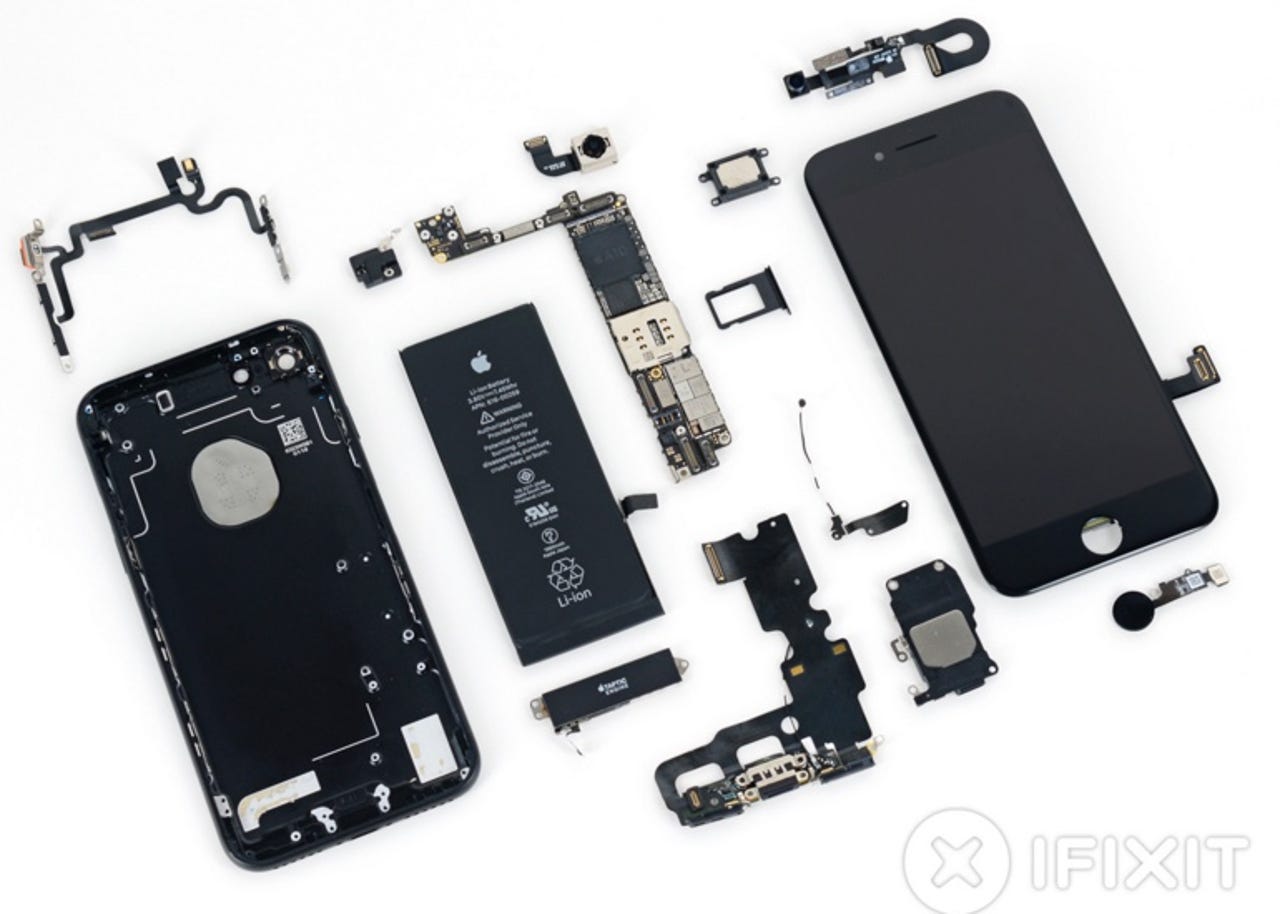There are two versions of the iPhone 7 -- did you end up with a fast one or a slow one?


iPhone 7 teardown
Apple makes it seem like there are only two different iPhone 7 models -- the iPhone 7 and the iPhone 7 Plus. Beyond that, the only difference that's listed is the storage capacity.
But new tests suggest that the cheaper 32-gigabyte versions have significantly poorer performance than their more expensive counterparts, and that some also display significantly poorer 4G performance.
See also: Macs are up to $543 cheaper than PCs, claims IBM
Testing carried out by GSMArena and Unbox Therapy discovered that the storage performance of the 32-gigabyte iPhone 7 is significantly slower -- about 200 Mbps slower -- than the pricier 128-gigabyte iPhone 7, at 656 Mbps and 856 Mbps respectively.
This difference is quite significant, but it is unlikely that a user would notice the difference. However, when it comes to storage write performance, the difference is far more significant. Write performance for the 32-gigabyte iPhone 7 was only 42 Mbps, while the 128-gigabyte iPhone 7 was over eight times faster, at 341 Mbps
This is something that the user is likely to notice, especially when loading apps and data onto the device.
This difference can possibly be attributed to the different storage chips being used in each model. During a teardown of the iPhone 7 carried out by iFixit and Chipworks, it was discovered that the 256-gigabyte iPhone 7 that was dismantled used Toshiba 3D NAND, while other versions used SK Hynix flash.
But storage performance isn't the only difference, as testing carried out by Cellular Insights shows that iPhone 7 Plus smartphones with model numbers A1778 and A1784 had a 4G network performance that was 30 to 75 percent worse than handsets with model numbers A1660 and A1661.
That difference is down to the 4G modem chip used. The A1778 and A1784 both use an Intel modem chip, while the A1660 and A1661 models both use a Qualcomm modem chip.
"In all tests, the iPhone 7 Plus with the Qualcomm modem had a significant performance edge over the iPhone 7 Plus with the Intel modem," wrote Milan Milanović from Cellular Insights. "We are not sure what was the main reason behind Apple's decision to source two different modem suppliers for the newest iPhone."
Apple did not immediately respond to a request for comment.
Cool, new iPhone 7 and iPhone 7 Plus accessories
See also: